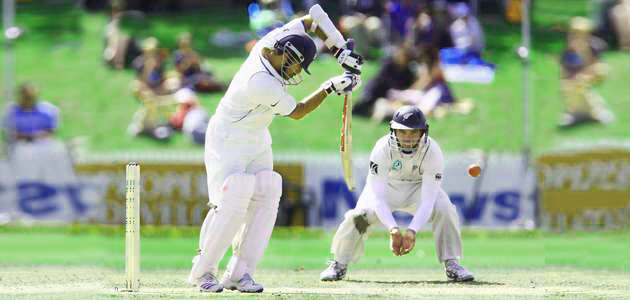ESTD : 1946
Regd. Under Societies Act. XXVI of 1961 Regd. No. : S/5614

The batsmen always need to decide instantly whether they would play the ball or defend the ball or score runs. When the players defend the ball they protect wickets as well as their body. It also intends to keep the ball on the ground. There are two types of defence, one is front foot defence and the other is back foot defence.
The principle of the back foot Defence
Principle of the shot is stepping back to play the shot, and is played to reach batsman more or less waist height.
It is played to stop the ball instead of scoring runs and is played against fast delivery. The batters need to be in the position of finishing off and hit the ball in a relaxed way, not to score runs. Constant practice leads to the perfection of the back foot defence play.
Training helps
Never push at the ball with the bottom hand, and carry on it stress-free.
Defend your wicket and body by fetching the bat down the straight line.
How to test the shot
The back foot defence shot can be tested in the following way:
Create a semi circle in pairs or in small groups in cone shape in front of the batsman. Let a player flings the ball with a bounce to the batsman who in turn defends the ball by bouncing it inside the semicircle.
The fielders stand outside the semicircle while working in groups fielders stand outside the semicircle. The batsman tries to continue without being caught. Protect yourself by hitting the ball softly to avoid to be caught.
In pairs or small groups, set up a semi circle of cones in front of the batsman. One player throws the ball with one bounce, towards the batsman, who defends the ball so it bounces inside the semicircle.
When working in groups fielders stand outside the semicircle. The batsman tries to survive for 10 balls without being caught. An attacking shot means they are automatically out.
Make the test harder by introducing one-hand-one-bounce – if the ball has bounced once the fielders may catch it with one hand and the batsman will still be out.